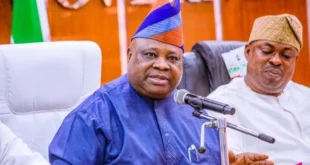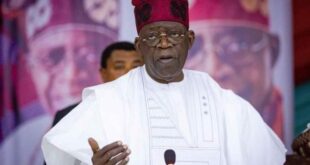In the face of rising costs and the aftermath of fuel subsidy removal and unification of foreign exchange markets, many Nigerian state governments are facing a fiscal challenge.
Recent analysis of state budgets reveals that at least 24 states cannot independently fund their workers’ salaries in 2024 without relying on federal allocations or borrowing from financial institutions.
This issue raises concerns about the productivity of workers and state governments’ efficiency in internal revenue generation.
While 11 states like Lagos, Kano, and Edo have robust internal revenue to independently pay their workers’ salaries, the remaining 24 states will need to seek assistance to complete their wage bills.
This situation is particularly concerning as state governors recently received the most FAAC allocations in at least seven years.
The increase in allocations is attributed to the petrol subsidy removal and currency reforms implemented by the current administration.
Despite the improved funding, the affected states will need to borrow an estimated N2.78 trillion from domestic and external institutions to fund their 2024 budgets.
The projected revenue increase should have reduced state governments’ appetite for more borrowing, but the current situation suggests otherwise.
Experts believe that state governments need to embrace financial innovations and develop marketable areas of strength to attract foreign investments.
In addition, they should increase their revenue by improving service delivery, which will attract more revenue.
Fiscal sustainability is also a major concern, as many states are not financially sustainable and are at risk of insolvency if there is no boost in investment.
To address this issue, state governors should take a cue from the Federal Government and reduce their bloated staff and political appointees.
They should also revisit the issue of restructuring to help states have more control over resources within their domain.
This will help them generate more revenue and become more financially sustainable.
Subscribe to the Advocate News letter and receive news updates daily in your inbox.
 Advocate.ng Latest news update on politics, entertainment, sport and more
Advocate.ng Latest news update on politics, entertainment, sport and more




